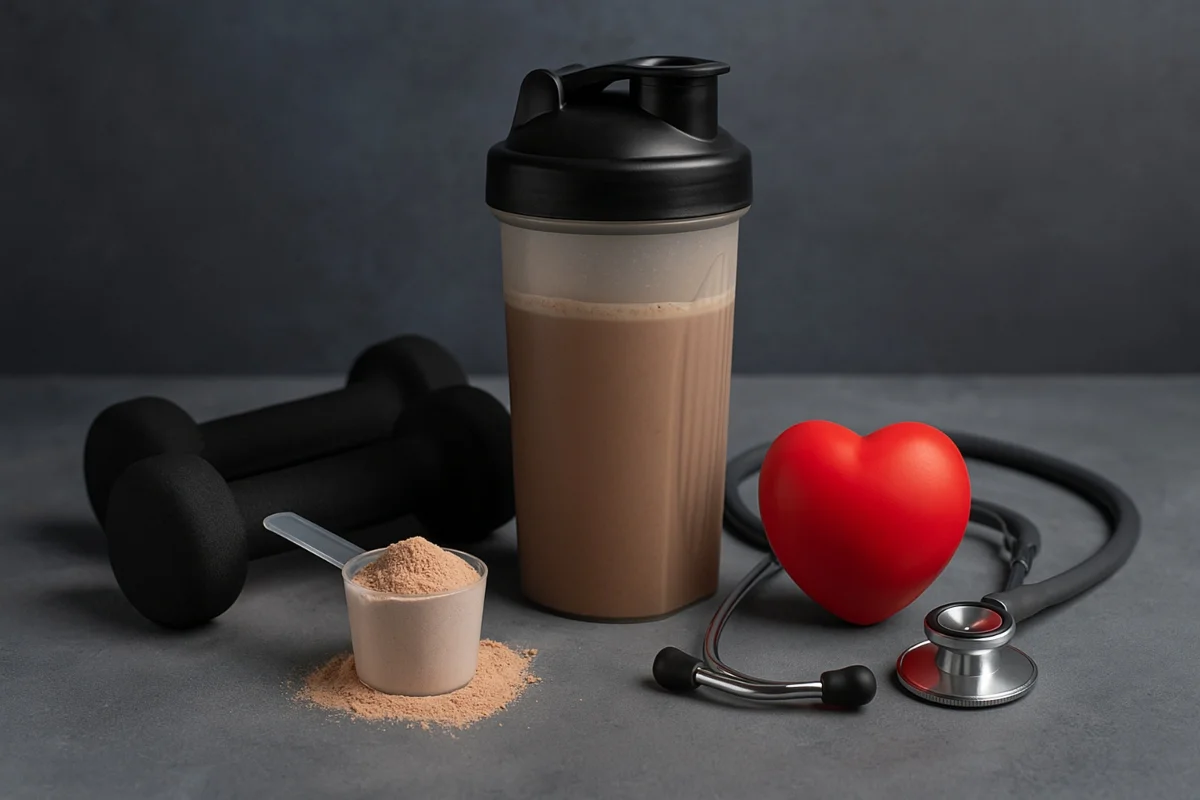Heart disease risks linked to protein diet risks are more complex than they seem. Recent findings reveal that the kind of protein source and intake level matter profoundly.
Understanding these risks helps decode why some high protein diets might backfire, leading to what experts are saying about this surprising connection.
Experts Decode the Science Behind Heart Disease Risk
Fitness expert Thomas DeLauer explains a February 2024 study often misinterpreted as blaming high protein for heart disease. The study involved participants consuming liquid protein meals with 10% to 50% protein calories, resembling popular supplements like Boost or Ensure. These drinks contain significant sugar and fat, skewing the results.
The study found that consuming more than 22% of daily calories as protein, or over 25 grams per meal, increased levels of the amino acid leucine. This rise in leucine activates immune cells that trigger the formation of plaque in arteries, a condition known as atherosclerosis.
DON'T MISS
DeLauer emphasizes the risk may lie more with the sugary, fatty composition of these supplements rather than protein from whole foods. This distinction is vital in understanding protein intake, heart health study findings, and the high protein diet risks.
When Fitness Goals Collide With Hidden Heart Health Dangers?
Many fitness enthusiasts consume protein shakes assuming they only fuel muscles, but high protein diet risks extend beyond that. These shakes, especially those high in sugar and fat, can raise inflammation and cholesterol, silently increasing heart disease odds.
This clash between muscle-building aims and heart health underscores the importance of scrutinizing what’s in your protein source. Choosing protein wisely affects not just weight goals but long-term vascular health, as revealed by protein shake side effects on heart.
Doctors Explain How Diet Patterns Influence Heart Disease
Medical experts warn that heart disease risk relates closely to overall diet patterns, not just protein amount. Diets heavy in processed meat and sugary supplements elevate LDL cholesterol and inflammation, key drivers of artery clogging. Conversely, plant-based proteins tend to improve lipid profiles and reduce heart risk markers.
Doctors advocate balanced diets with moderate protein intake while avoiding excess processed protein products. This approach minimizes dangers from a high protein diet while supporting cardiovascular health.
Practical Tips to Keep Protein and Heart in Harmony
To balance the benefits of a high protein diet with heart health, focus on whole food protein sources like legumes, nuts, fish, and lean poultry. Avoid protein shakes loaded with sugars and fats. Spread protein intake evenly across meals and keep it below 22% of daily calories.
Regular checkups to monitor cholesterol and inflammation can catch early signs of heart risk. These practical tips help harness protein’s muscle benefits while minimizing protein shake side effects on heart.
Is Your Protein Shake Friend or Foe?
Protein shakes are not inherently harmful, but become risk factors when they are calorie-dense with hidden sugars and fats. The difference lies in choosing shakes that complement a heart-healthy diet.
Whole food proteins remain safe and beneficial, supporting muscle and vascular health. Ultimately, understanding protein shake side effects on the heart and knowing the source and content can transform your shake from foe to friend in your fitness journey.
To protect heart health, be mindful of protein diet risks and avoid excessive high protein intake. Balanced protein choices support wellbeing without raising heart disease risks.
Disclaimer: This content, including advice, provides general information only. It is not a substitute for a qualified medical opinion in any way. The methods and claims mentioned in this article should be considered as suggestions only; DNP India neither confirms nor denies them. Always consult a doctor before following any such suggestions/treatments/medications/diets.
